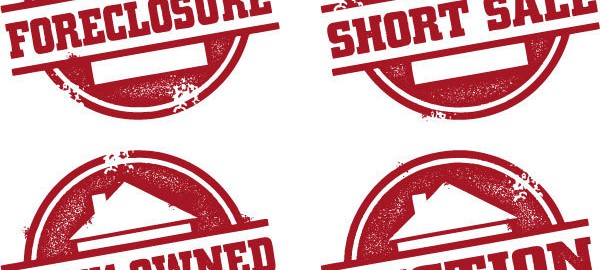Distressed property homeowner options
 Though the number of foreclosures may be declining as property values rise locally, some owners still find themselves struggling with the issue of what to do with a home worth less than what is owed on it. There are several options – two legitimate and one highly unadvisable – to avoid suffering a pronounced financially-impacting foreclosure.
Though the number of foreclosures may be declining as property values rise locally, some owners still find themselves struggling with the issue of what to do with a home worth less than what is owed on it. There are several options – two legitimate and one highly unadvisable – to avoid suffering a pronounced financially-impacting foreclosure.
Using a real estate agent for a short sale
Real estate agents became subject matter experts out of necessity when the economy suffered drastically through the great recession of 2008. The local Solano County market saw countless agents marketing their varying skills at helping “underwater” homeowners absolve themselves of impending financial disasters through short sales. But, is using an agent the best route? After all, the agent is working for a commission and the lender holding the mortgage still has to agree to terms. As the market continues to improve, lenders are increasingly less likely to agree to drastic forgiveness in mortgage debt. Are individual agents really able to make much of a difference? Of course, the answer varies from transaction to transaction.
Another option to recover as much investment as possible
Using a real estate investor may be the best option if the property is not only distressed, but not in the best condition as well. Real estate investors are far more apt to be willing to negotiate, and most importantly, oftentimes carry their own financing without having to rely on the demands of a traditional lender. However, homeowners in a distressed situation must remember they are at a disadvantage, and as such, must be critically aware of unscrupulous and unethical investors looking to make large paydays on the seller’s back. As always is advised, sellers must do their homework and thoroughly check on the reputation and honesty of a potential investor; at a minimum ask for references and previous clients. If he or she is hesitant, then a seller best beware.
Beware very aware of a third option: so-called strategic defaults
As the foreclosure crisis lengthened and the number of affected homeowners grew exponentially, discussions resulting from “strategic defaults” began to proliferate in the media. As many owners were deeply “underwater” – again those homeowners that owe more on their property than it is worth – desperation set in. And with it creative home transactions. One approach was for owners to buy another property while they could still qualify, then rent out their existing home as long as they could. Once they had successfully moved into the new property and made a few monthly payments on the new mortgage – with help from the “rental” income – they would default on the original property. Ethical considerations aside, criminal behavior usually resulted from such activity. Not only would the renters ultimately be evicted from their “temporary” residence, additionally, lenders stung by the loss of large amounts of capital, caught on to the increasing number of “creative transactions” and began in earnest to prosecute people who engaged in premeditated fraud. As was clearly debated, a homeowner keeping the property as a rental is perfectly legal, but defrauding a lender about the ultimate intent is not.